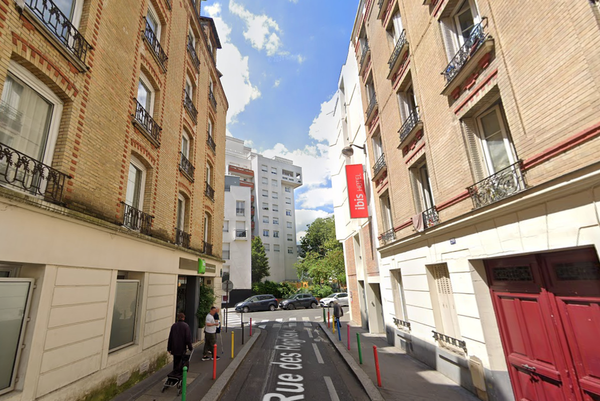
When my boyfriend asked if I would move with him from London to Washington DC in December 2017, I said yes right away. He had been offered a job there and I would need a spousal visa to join him, so we decided to get married. It felt like an adventure. We were young, child-free and had no real responsibilities. I was a freelance journalist and could plausibly work from anywhere, so why not Washington? Why not somewhere new?
I didn’t realise until we arrived, but the terms of my visa meant I wasn’t allowed to do paid work until I acquired the proper permit, which would take months. In the meantime, I was in limbo. At first, it felt like an extended holiday. But about six weeks in, the implications hit home. I accompanied my husband, who was a foreign correspondent, to a work-related drinks event at a bar near Capitol Hill, where everyone other than me seemed to have an impressive job title.
I vividly remember talking to one woman. She was impeccably groomed, with dark, glossy hair and an expensive-looking, perfectly fitted cream dress. She couldn’t have been more than a few years older than me and was a member of the White House press corps, working for a major US TV station.
I am certain it wasn’t her intention, but I remember how small I felt when she asked, perfectly pleasantly, what I did for a living. I said that I had moved with my husband’s job and wasn’t currently working. Until that moment, I don’t think I had fully understood how much my self‑esteem was tied to my work and how preoccupied I was with how I was perceived by strangers.
My confidence took a hit, but there was something exhilarating about shedding the identity I had had back home. I could have told her that I used to write and planned to start again once I had my work permit – but in that moment I was suddenly not sure if that was true. For the first time, I contemplated the option of doing something completely different with my life.
Before leaving London, I had experienced a sudden rise in prominence as one of a minority of mainstream media journalists who supported Jeremy Corbyn’s leadership of the Labour party. At the time, it all seemed very important. I also felt so lucky to have been given the opportunity; I needed to make the most of it. The idea of giving up writing felt unthinkable.
Except I had stopped writing – and nothing had really changed. All the column inches I had filled were easily being filled by other people. The realisation that my writing was not, in fact, all that earth-shatteringly important liberated me to consider what I actually wanted from life.
So, when my work permit came through, I decided to prioritise mental wellbeing over status, ambition or self-aggrandising notions about significance. I found a job as a nanny. I spent the days bouncing between parks, cafes and the library with my two-year-old sidekick – and I was happier than I had been in years. It was a relief to stop caring about how I was perceived by anyone other than family, close friends and the toddler who greeted me with a sticky-palmed hug every weekday morning. I didn’t think negatively of high-flyers like the woman in the cream dress, but didn’t I envy them, either.
I contemplated various career changes, but nothing felt more appealing than my life as it was. The internal voice that said I should be striving for something more aspirational – the same voice that had told me it was embarrassing to have moved purely for my husband’s job – grew fainter and fainter over time. I developed a much more solid, intrinsic form of self-esteem. When I attended work‑related events with my husband, I told people I was a nanny without feeling that it made me less than anyone else in the room.
In the summer of 2019, I had a child of my own and became a stay-at-home mum, which was what I wanted, but also felt like the only sensible option, given the cost of childcare. We moved back to the UK just before Christmas 2020, during the final pandemic lockdown. Instead of attempting to rebuild my previous life, I had a second child and looked after them both full-time for another two and a half years.
I have often heard women discuss struggling with a loss of identity after having children and I think a big factor in that is taking a career break. Paid work, as I realised, is a major source of self-esteem. But because I had already lost the identity I had as a journalist, the transition was less jarring for me. I really enjoyed how many people knew me only as my children’s mother. It felt freeing to meet someone new and be taken exactly as the person you show up as in that moment.
I am back working now, but the shift in perspective feels permanent. I want to earn money, and ideally to spend my time doing something I find interesting and meaningful, but I am far less concerned with how it looks from the outside.
• Do you have an opinion on the issues raised in this article? If you would like to submit a response of up to 300 words by email to be considered for publication in our letters section, please click here.







